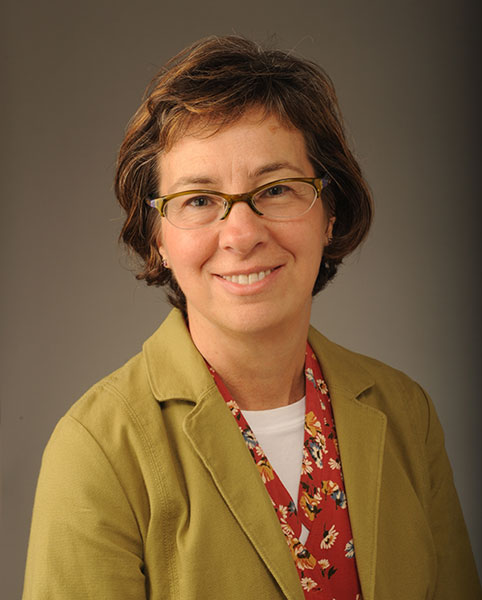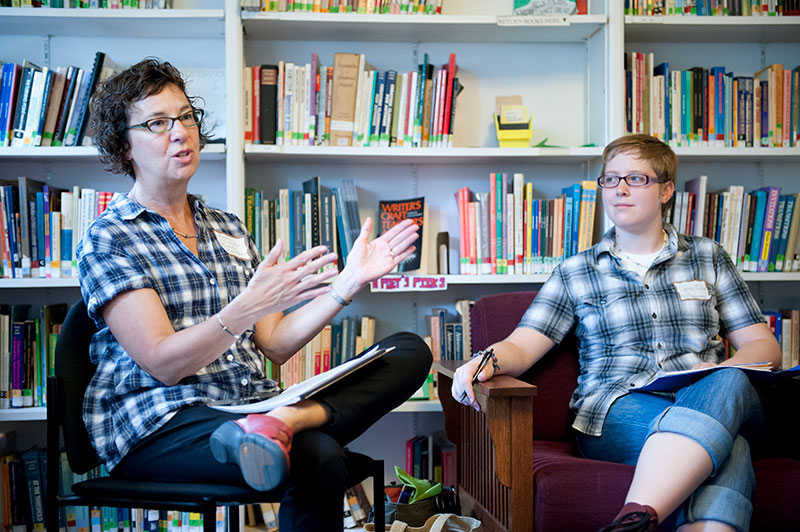Filed under:
 Barbara Schecter ’74 joined the faculty of Sarah Lawrence’s Psychology program in 1985, embarking on a career at an institution she already held dear. She says, “I was a transfer student to Sarah Lawrence for my undergraduate degree, and I found it really life-changing. Studying at the College was the most formative intellectual experience of my life. I truthfully could not imagine myself teaching anywhere else.”
Barbara Schecter ’74 joined the faculty of Sarah Lawrence’s Psychology program in 1985, embarking on a career at an institution she already held dear. She says, “I was a transfer student to Sarah Lawrence for my undergraduate degree, and I found it really life-changing. Studying at the College was the most formative intellectual experience of my life. I truthfully could not imagine myself teaching anywhere else.”
Over the years, Schecter’s role at Sarah Lawrence evolved, and she began to take on additional responsibilities. In 1997, Schecter was chosen to direct Sarah Lawrence’s Graduate Program in Child Development, a progressive MA program that combines in-depth study of primary theoretical perspectives with practical fieldwork, preparing graduates to support the complex needs of children and their families.
Under Schecter's leadership, the College launched a partnership with NYU’s Silver School of Social Work to offer a unique dual MA/MSW degree in social work and child development. She reflects, “I feel that the development of the dual degree program is a very significant accomplishment in the last 25 years, and a real contribution that the program makes to the fields of both social work and child development. We were among the first in the nation to take this dual approach, and I feel that it was a natural extension of Sarah Lawrence’s history as a pioneer in child development and psychology.”
One of Schecter’s primary scholarly interests, which has reverberations throughout Sarah Lawrence’s psychology and education programs, has been the importance of play in children’s development. Her course “Play in Developmental and Cultural Context” is among her favorites to teach, and she has offered an annual weeklong interdisciplinary program titled, “Play’s the Thing: Facilitating Play for Young Children” through the College’s Child Development Institute (CDI). The program brings together professionals and graduate students who work with children in diverse contexts: educators, social workers, child life specialists, parks and recreation workers, children’s museum staff—anyone interested in learning and advocating for the importance of play. Participants engage in open-ended play through CDI’s Community Adventure Play Experiences (CAPE’s), and learn to facilitate these creative experiences for young children.
Charlotte Doyle (Psychology) reflects, “Through her work with the CDI, Barbara brought pop-up playgrounds to the children of Yonkers – mobile playgrounds with lots of loose parts and tools. Here, children can manipulate, construct, and create, free from adult direction but with their facilitation and support. This is one of many ways Barbara has drawn on her own creativity, initiative, and intelligence to better people’s lives.”

Schecter’s other favorite course to teach has been “Theories of Development,” a core course that all graduate students take upon beginning the Child Development MA. She says, “While students are learning about child development in a deep and sustained way, they are also doing fieldwork in the College’s Early Childhood Center. They learn to observe children to see what’s important in a context where children are talking to each other, playing, making friends, resolving conflicts—these are all things that are essential to children’s development. And our students very intentionally bring what they’re observing back to the course. So I love teaching that course, because it’s different every time I teach it, because what students see is different.”
Doyle says, “Barbara is very committed to Sarah Lawrence’s distinctive educational approach. Under her guidance, Master’s students, like Barbara before them, find the coursework experiences life-changing. Then, through discussion with her, they develop theses that both contribute to the child development field and are deeply meaningful to them personally.”
Sarah Lawrence president Cristle Collins Judd adds, “Beyond Barbara’s intelligence and passion for her work, she is also a person of great integrity. She pays close attention to the experience of her colleagues, students, and the CDI’s constituents, and she works to incorporate their perspectives into the fabric of the College. Sarah Lawrence has benefited immeasurably from Barbara’s warmth, her intellect, and her dedication.”
In her retirement, Schecter will remain active with CDI, and she looks forward to spending time with her children and grandchildren.
Share your well-wishes for and memories of Barbara Schecter on our Kudoboard for this year’s retiring faculty!